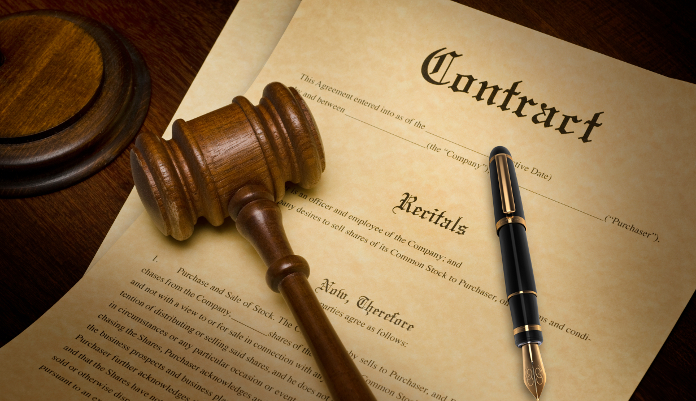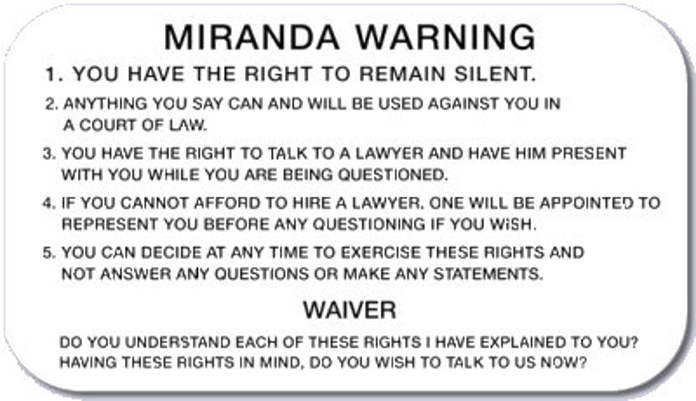1. Complaint/Summons and Order to Appear
A criminal case starts with the issuance of either a Complaint or a Summons. Occasionally, it may begin with something called an Indictment. We’ll talk more about that later. If you are arrested, you will be served with something called a Complaint. If you were never technically arrested (perhaps you were detained and released), but you are nonetheless charged with a crime, you may simply be given a Summons or Order to Appear. Traffic tickets usually start with a summons or order to appear because traffic tickets are generally not an arrestable offense. Sometimes, even if you are charged with committing an arrestable offense, you may nonetheless be given a summons. If you are charged with an arrestable offense (for instance, its penalty includes the possibility of jail), you may be issued a summons because the officer does not think that you are a flight risk. Or, based on the severity of the offense, the officer may not feel that you are a risk to yourself and others.
2. Hire the best attorney that you can afford

At this juncture, if you have been charged with a crime, you should make efforts to hire an attorney if you have not already done so. There are numerous benefits to having an attorney: the attorney understands the process in which you are involved. The attorney your mouthpiece or spokesman--your advocate. The attorney will communicate with the police, the prosecutor, the judge, and the jury on your behalf. The attorney should understand the rules of evidence. He should know how to keep opposing evidence out of the courtroom and how to get your evidence in. He should know how to subpoena witnesses on your behalf, obtain records, and cross-examine adverse witnesses. He should have experience in criminal defense so that you know when you have a solid defense and when it’s time to plead guilty for the best possible outcome. Having an attorney is also a matter of convenience. The attorney can often go to multiple court hearings so that you don’t have to. If you are facing criminal charges, before you think about setting foot into a courtroom, you should hire the best attorney that you can afford.
3. Arraignment or Initial Appearance, Bond Setting
Once you are charged with an offense, whether a speeding ticket, disorderly conduct, or murder, unless you have hired an attorney (and sometimes even then), you will appear before a judge or magistrate at an arraignment or initial appearance. The primary purpose for arraignment is to enter a plea. If you are charged with a misdemeanor or traffic offense, some courts will allow an attorney to do this for you. There are four basic types of pleas: guilty, no contest, not guilty, and not guilty by reason of insanity. Arraignments are typically set up for numerous defendants to come before a magistrate or judge in quick succession. They are also set up so that the defendants are encouraged (and sometimes required) to enter a “not guilty” plea. Occasionally, the court might tell an unrepresented defendant at arraignment what the sentence will be – usually a lenient sentence – to encourage them to plead guilty.
4. Court-Appointed Attorneys
If you are charged with a crime that is punishable by jail, at the arraignment, you will be asked whether you have hired/are hiring an attorney, and if not, whether you can afford an attorney. If you cannot afford an attorney, the court might determine that you are indigent or, without money, and appoint an attorney for you. While some people can be skeptical about the skill or experience of court-appointed attorneys, remember that an attorney who takes a court-appointed case from you has most likely taken a paid case from someone else. The attorney doesn’t “work for the prosecutor” or “work for the judge” or “work for the system.” For example, my office takes court-appointed cases. My office gets paid by the State of Ohio, not the judge or the prosecutor. It’s an independent LLC. It files its own taxes. I’m not beholden to anyone except God, the legal profession, and my client. If you can’t afford an attorney, you may not get to chose which attorney you have, but nonetheless, having an attorney is better than not.
5. Preliminary Hearing
In Ohio, when a person is charged with a felony, they are entitled to a preliminary hearing within 10 days of their arrest. The purpose of a preliminary hearing is to determine whether there exists probable cause to charge a person with a crime. Oftentimes, a person’s right to a preliminary hearing is waived (or given up) in exchange for a reduction in bond. There are some reasons in favor of having a preliminary hearing, but there are usually more reasons not to have one. At the preliminary hearing, the defense attorney may not have full discovery. This can become problematic because generally, testimony taken at preliminary hearing can be used in a trial at a later date. At a preliminary hearing, witnesses’ memories will be fresher and a defense attorney will have less information to be used for cross-examining those witnesses. The best outcome in a preliminary hearing is to perhaps demonstrate to the prosecutor that the case is weak, or even get the Complaint dismissed by the judge; however, a stubborn prosecutor may nonetheless present the charges to a grand jury. The decision whether to have a preliminary hearing is a very individual decision. Hopefully at this juncture, you have legal counsel and it is strongly recommended that you follow counsel’s advice.
6. Indictment or Bill of Information
After a complaint is issued and the opportunity for preliminary hearing given, the case proceeds to be presented to a grand jury for an indictment. If the grand jury determines that there is probable cause to charge a felony, the grand jury votes to issue a true bill. If the grand jury does not believe that probable cause exists to charge a felony offense, the grand jury issues a no bill. Sometimes, to prevent a case from being presented to the grand jury, a defendant may waive or give up his right to being indicted by a grand jury and agree to enter a guilty plea to certain felony charges in what is called a bill of information. A bill of information is a sort of substitute to an indictment and is not presented to a grand jury. The prosecution may be willing, in such a situation, to forgo some charge(s) in exchange for a guilty plea to a bill of information.
7. Pretrial Hearing / Pretrial Motions / Trial
Once a person has been charged with an offense, the charges must come to resolution. Any defendant who is charged with a crime punishable by imprisonment has a right to a jury trial. However, in a case that might be swayed by sympathy or where the technical application of the law to the facts is important, the defendant may elect to have a bench trial, where the judge is called the is the finder of fact (the judge decides the case). In anticipation of trial, the attorneys and/or parties often are involved in pretrial discussions between themselves and sometimes including the judge. The purpose of the pretrial discussions is to determine what the evidence is expected to be, to evaluate the strength of the positions, possible defenses, whether pretrial motions such as a motion to suppress might be appropriate, as well as negotiate an outcome to which all parties can agree, often referred to as a plea agreement or plea bargain. The plea bargain may result in the dismissal of charges, an agreed-on sentence, or a sentencing recommendation. If a plea agreement cannot be reached, the matter proceeds to trial.
Navigating the criminal justice process can be complex, even for trained, experienced attorneys. It is therefore imperative that any person who is either the subject of a criminal investigation or who is presently facing criminal charges obtain the best attorney that they can afford.

 Should I Pay the Waiver?
Should I Pay the Waiver? Felony THC Possession
Felony THC Possession Forming an LLC
Forming an LLC Anatomy of a DUI Case
Anatomy of a DUI Case Winning a Social Security Disability Case
Winning a Social Security Disability Case 6 Questions About Chapter 7 Bankruptcy
6 Questions About Chapter 7 Bankruptcy 8 Reasons to Have a Will
8 Reasons to Have a Will 9 Divorce and Custody Questions
9 Divorce and Custody Questions Issues Considered in a Domestic Relations Action
Issues Considered in a Domestic Relations Action A Step by Step Guide to Search and Seizure
A Step by Step Guide to Search and Seizure You Have the Right to Remain Silent: Exercise It!
You Have the Right to Remain Silent: Exercise It! A Guide to DUI
A Guide to DUI Ohio Law Bans Red Light Cameras, Cities Sue
Ohio Law Bans Red Light Cameras, Cities Sue Sex Offender Fails to Disclose E-Mail: Prison
Sex Offender Fails to Disclose E-Mail: Prison Plea Deal Rules that Limit Advocates' Judgment
Plea Deal Rules that Limit Advocates' Judgment Private Universities’ Police Records are Public
Private Universities’ Police Records are Public NFL Players Prevail over Cleveland's Tax Practices
NFL Players Prevail over Cleveland's Tax Practices